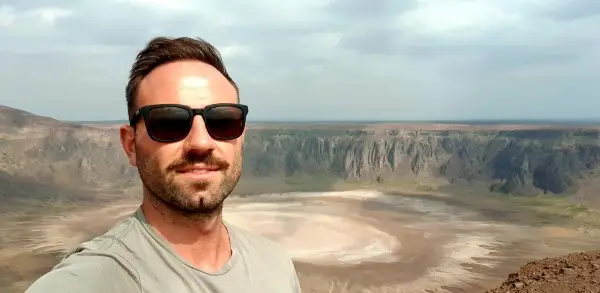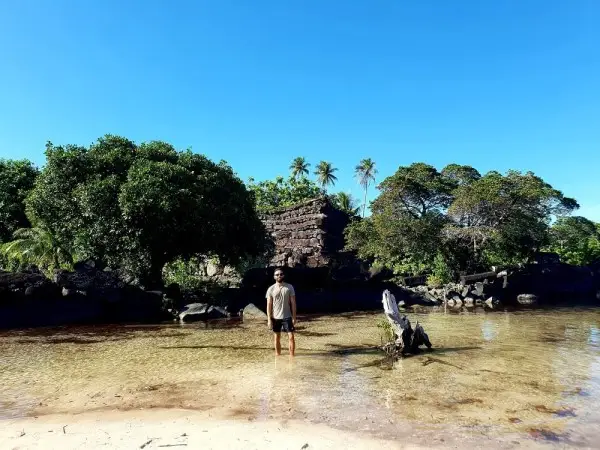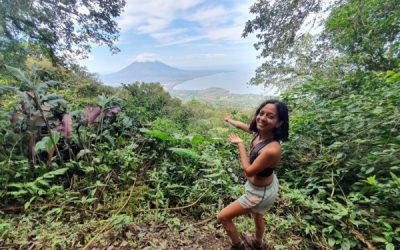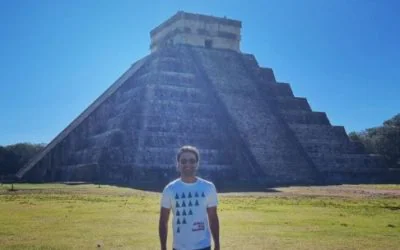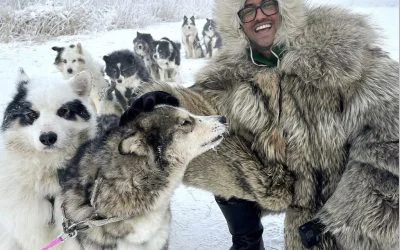Mike Richards is the face behind the popular travel site The Travelling Ape. A prolific self-confessed dromomaniac, Mike, who also has an active Instagram page, has visited more than 75% of the world’s countries. He talks to us today about his travel passion.
Mike, tell us about your early life, where are you from and how your hometown influenced your interest in travel.
I grew up in London, UK, where I’ve lived for most of my life. I was fortunate that my parents liked travel. A couple of trips we did – a road trip through the US, a safari in Kenya, and a holiday to Brazil – were the ones that really pricked my interest in travel. A gap year to Borneo and South-East Asia when I was 19 was when I became truly hooked. (My holiday destinations and taking a ‘gap year’ probably allude to the fact that my upbringing was a fortunate one).
London played a huge role in my interest in travel. I still think it’s the greatest city on earth. Other cities like Paris are prettier and New York has more of the ‘wow’ factor with its skyline, but it’s the diversity of London which is unsurpassed anywhere. Culturally, ethnically, and architecturally, you can turn a corner in the city and arrive in a different world.
That’s why I love it. It definitely made me keen to experience more of what the world has to offer. It’s also super useful that from London you can fly everywhere in Europe in really cheaply, and have great connections to the rest of the world.
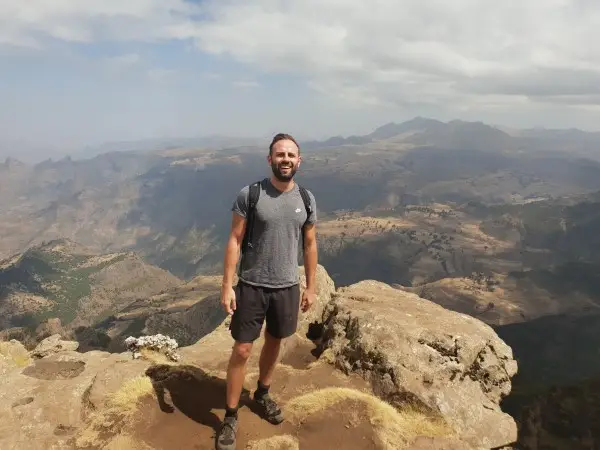
Have you changed the way you travel through the experience of being on the road for such a long time?
There are definitely a few things I’ve learnt from being on the road for so long. One of the major things that stands out is my attitude to travel. When I first started travelling, I expected I should probably be having fun all the time and it would be really easy. But often, travelling can be the opposite of this. So I’ve learnt to embrace the bad a bit more, because often, these experiences give you your best travel memories.
A concept I really like is the idea of ‘Type 2 Fun’. These are events which are objectively bad at the time, but for some reason, you look back on fondly in years to come. One example was getting our bags stolen while swimming in the Red Sea in Israel. We had to drive back to Tel Aviv – four hours away – after all of our wordy possessions were stolen.
We walked into the British Embassy without shoes and wearing swimming trunks. We still laugh about the story to this day, even though we definitely weren’t laughing at the time. Now, when my bags go missing, a taxi driver gets lost, or I get ill while travelling, I try to see the funny side.
Another way I’ve changed is how I pack and dress. When I first went to Thailand, I was the parody of a teenage traveller. My backpack was huge. I filled it with as much ‘tat’ from local markets as I possibly could – those trousers with elephants on them, useless wooden sculptures, incense holders – stuff that I proceeded to never use again. To fit in with the other backpackers, I wore ‘Chang Beer’ tank tops, lots of bracelets which got smelly and manky over time, and to (my horror) even a trilby-style traveller hat at one stage.
Looking back on the pictures makes me laugh. But I’ve now realised that you don’t need to dress like a ‘traveller’ when abroad. Just wear your normal clothes, and those which are comfortable. You don’t need to wear things like those khaki combat trousers with thousands of zips on them, for example. I also make sure I pack really light. I always have a bag which fits in hand luggage.
It makes moving around so much more comfortable and reduces the chances of your bags getting lost or delayed en route. People often ask how I survive with so few clothes while travelling. I just remind them that there is this amazing thing which exists all over the world….the ability to wash your clothes. Simple.
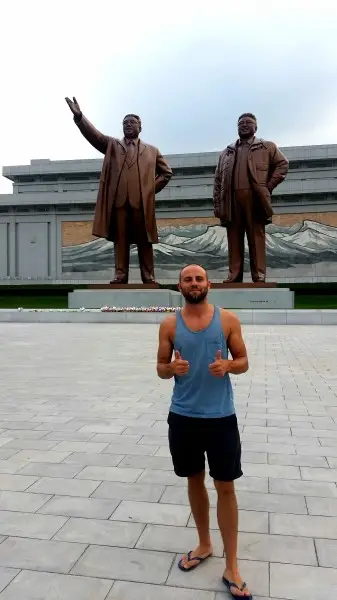
You consider yourself a very curious traveller… how do you encourage curiosity and openness while travelling?
I think my blog thetravellingape.com is the vehicle I use to try and make people curious about travel and the wider world. I started it around three years ago. It started as a blog documenting my attempt to visit as many of the world’s countries as possible. But it has since grown to cover topics like geopolitics, international relations, philosophy, and meditation, which are all areas which are still impacted by my experiences travelling the world.
The main lesson I’ve learnt is that the world is so much better than we think it is. People are much kinder and much more similar than everyone thinks. There truly is more that unites rather than divides us. But if you read the news, flick through social media, or watch TV, they only choose to focus overwhelmingly on the negative. Wars, murders, and crimes, for example. But there is never a news report about the literally billions of good things that happen in the world each day. Acts of kindness, love, and friendship.
My blog is an attempt (albeit a very small one) to try and tip the balance, and to get us thinking about the world and human beings in more positive terms again. I’m in the process of writing a book on humanity, geopolitics, and human happiness, which will hopefully flesh out the degree to which travel can change your outlook on the world for the better. Watch this space.
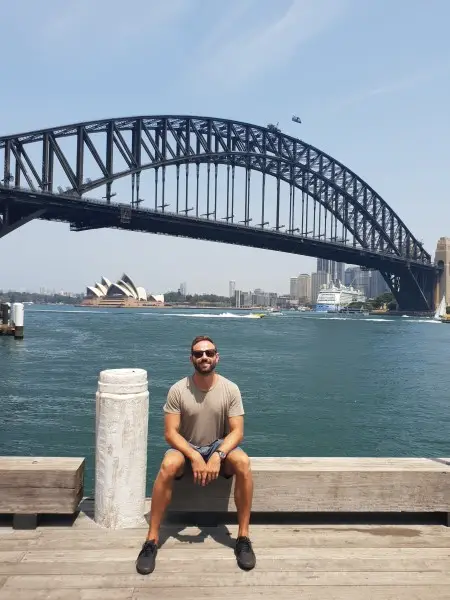
How deep do you go when you plan your trips? Being a political risk analyst makes you think twice before going to an unstable country?
Yes, to be blunt. In most places, it’s not something I really think of. But my palms have certainly sweated a fair bit when I’ve been crossing the borders of places like North Korea, Iraq, Turkmenistan, Algeria, and the like, where press freedom is non-existent. I’m not a journalist per se and most of the economic and political research I write is focused on the Europe region.
But this isn’t something I feel I’d be easily able to convey to a North Korean border guard who speaks no English! So I try to be as careful as I can, and choose not to visit the most sensitive countries if there is a flare up in geopolitical tensions between the West and the country I’m visiting.
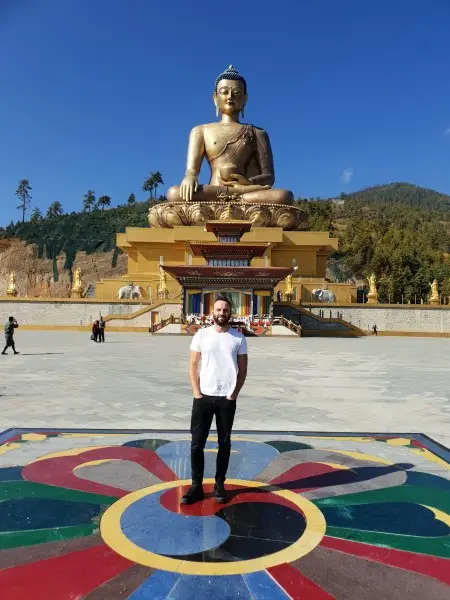
What is your opinion about travelling during Covid Pandemic and how do you think the next years will be for us travellers?
To be honest, I don’t think the outlook for travel looks great in the near term. I was a bit of a Covid-denier at the start. Not in the conspiracy theory way. Just in very selfish “I can’t believe this is happening, I don’t want it to be happening, and when will I get to travel again?” kind of way. I was in Australia and had to cut short a trip to come back to London, and had lots of trips planned over the course of the year.
It was hard to take, but I know for so many people the reality of Covid-19 has been terrible. So I really can’t complain and feel blessed that my career and life wasn’t impacted in other ways.
I think your regular travel destinations will be back to some form of normality from 2022 onwards. But some of the more “off piste”, less visisted destinations will be harder. They will be the ones where flights don’t return, or are negatively impacted by airlines collapses. I was really sad to hear that Oasis Overland had to close operations recently. I did an amazing trip through Central Asia with them in 2017.
Overlanding is such a good way to see the world, and I was planning on doing much of West Africa this way before the pandemic. I think it might be many years again before travel like this, when you cross multiple borders in one trip, gets back to pre-coronavirus levels.
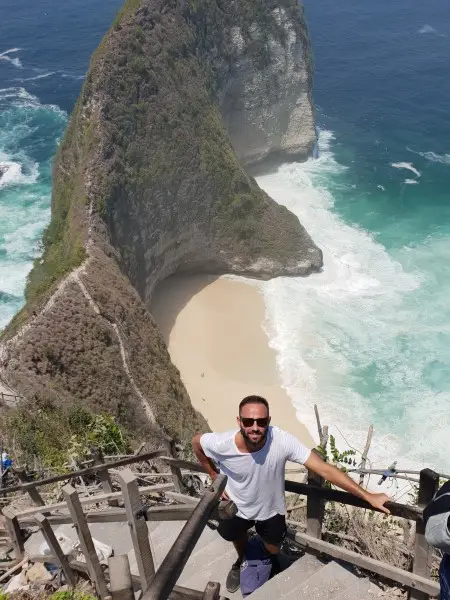
Which countries most surprised you both positively and negatively?
Hmm, there are a lot that stick out for me here. But for me the most underrated travel destination in the world is Uzbekistan. Let’s be honest, most people probably couldn’t list a single thing about any of the Central Asian countries, they are totally off people’s radars. But Uzbekistan is beguiling, and it’s my favourite Central Asian country (with Tajikistan just behind).
A heady mix of Soviet and Islamic influences has created a nation full of beautiful Islamic architecture juxtaposed with the remnants of the country’s time spent under the guise of the USSR. While the food – and the local delicacy ‘plov’ is nothing to write home about – magical places like Bukhara and Sarmakand more than make up for this.
A second country which pleasantly surprised me was Algeria. Many probably wouldn’t think of Algeria as a tourist destination. It could be, as it’s situated so close to Europe. But it has one of the most fiddly and annoying tourist visa processes in the world. This is a massive shame. Algerians are the friendliest people I’ve ever come across. Bar none. I couldn’t believe how welcoming everyone was, despite the fact that I visited in the midst of huge protests across the country.
You have the incredible mix of French and Algerian cultures in the capital, Algiers. The wonderful Roman ruins at Tipaza. And more broadly: some of the bluest skies on the planet. That Algeria is not a massive tourist destination is a crime; hopefully the government sorts this out in the coming years.
On the negative side, one country stands out above all else. Nauru, in the Pacific Islands, is a microcosm for so many of the world’s problems. For a tiny island, with just over 10,000 inhabitants, Nauru has an unhappy history. The island is a cautionary tale of financial mismanagement and environmental degradation. In 1982, incredibly, Nauru was the richest country in the entire world on per head basis.
It built up huge royalties from mining phosphate, which it squandered quite spectacularly. Fast forward to today. The mines and state coffers are empty. Perhaps the government didn’t realise how small the island is. At just 20km squared, around 80% of the island is now an uninhabitable, disused mine. You can drive around the islands green outer ring, with a nice beach here and there. But if you head inland, you hit the dark and dank wasteland of the mine after a few hundred metres.
From the air, the island looks like a nuclear bomb test sight, ringed by a thin ribbon of green on the shoreline. In my view, Nauru is one of the worst countries to have been born in. And not much better to visit. Others agree: Nauru is the least visited country on the entire planet.
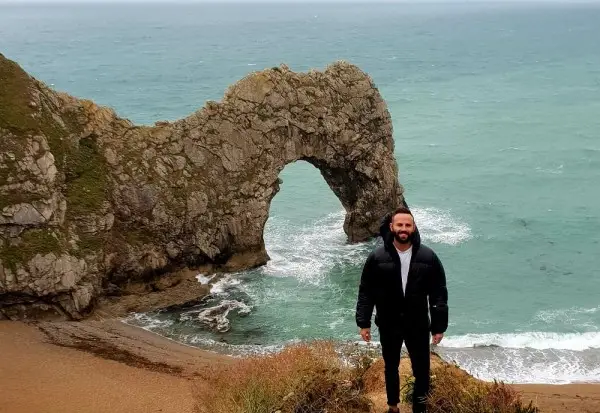
Personal development is one of the main subjects of your blog… which are the main lessons you learned while travelling? How do you think travelling helped you become a better person?
I think travel opened my mind to the myriad of different ways in which people choose to live in the world. The Western one certainly has some good parts, but some bad ones too. We are constantly told to defer our happiness until some later date, retirement perhaps, when you can finally do all the things that you wanted to. Life doesn’t work like this.
So I vowed to experience as much of the world and learn as much about myself as possible, while I was still relatively young. I wasn’t going to be one of the people who talked of travelling, but never got round to it. Life is too short.
One of the main things I’m fascinated with is the idea of human happiness. It’s clear to me that happiness is not wholly dependent on economic circumstances. I’ve been to parts of the developing world, like India, Madagascar, Sierra Leone, Zimbabwe to name but a few, where you’d expect people to be unhappy, due to their very poor economic position. But often, this simply isn’t the case. Closer connections with others and a large support network appears to offer people in these countries a big ballast for the struggles they face in life.
I’ve also been to many places where people appeared to be simply happier than us in the West, who spend their lives toiling away trying to acquire ever more ‘things’ in the hope that happiness will one day arrive. When you see people being happy with so little, it changes you. And when you witness the poverty and conditions which literally billions of people struggle with worldwide every day, it makes you less likely to moan about all of the trivial things Westerners moan about.
Most people have no concept of how lucky they really are. If all American or European children had to spend a week in Pakistan or Congo at some stage, I think that would be a bigger life lesson than anything they’ll ever learn in the geography classroom.
It was also travel that first got me interested in meditation. Visiting places like Myanmar, India, Bhutan, Thailand, which have large Buddhist populations, exposed me to meditation for the first time. While I’m an atheist, the practical teachings of meditation stood out for me. I’ve been practising for around six years now, and have attended silent meditation retreats in India, the UK, and Indonesia.
Meditating has made me more focused, productive, calmer, and happier. It’s allowed me to become a much better version of myself. Nothing has benefitted my life more than meditation has, which is why I also now teach it to others.
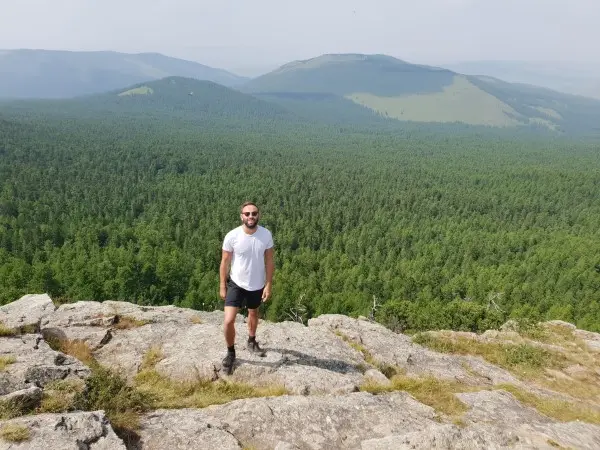
Tell us a few of your travel adventures that stand out…
There are a few situations I’ve been in that stand out, perhaps mostly for their strangeness. The first was a trip to North Korea, in 2016. North Korea is a stranger and more dystopian land than we are even led to believe it is. I struggled to come to terms with the fact that a society like this still exists in the modern world. City streets were regimented, colourless, and stank of oppression (and many stank in the more literal sense as well).
I had a day or two ‘exploring’ Pyongyang. This involved being strategically shown all of the Kim family’s greatest monuments and achievements, under at times hilariously zealous supervision from our government-approved minders. We were told not to do silly poses in front of any statues of the country’s dear leaders, lest it offend them and the glorious nation of the Democratic People’s Republic of Korea. Neither democratic, a republic, or in any way for the people, I like to call it Silly Korea (not to Kim Jong-un’s face). The whole experience was too surreal for words.
Another couple of highlights were seeing the gorillas in Volcanoes National Park in Rwanda. They are so strikingly human that it took the breath away. That, and as a silverback brushed straight past me, I don’t think I’ve ever been more scared in my life and could barely breathe.
A further highlight was visiting My Mt Yasur, in Vanuatu. It’s one of the longest continually erupting volcanoes in the world. I was expecting a pathetic little hill with a bit of steam coming out of the top. When I reached the summit and peered down into the crater, what I was greeted with could not have been more different.
Mt Yasur is without doubt the most impressive natural wonder I have ever seen. I think it’s the best sight I have ever witnessed, for that matter. Period. Particularly as it got dark, and all you could see was gurgling magma flying into the sky, I thought it really would be hard to top this. I also thought that some of the lumps of magma were landing only a hundred feet away or so from where we were standing. All we were armed with were plastic safety goggles, given to us by park rangers with no sense of irony.
Clearly, feeling like my life is in danger leads to some of my most memorable experiences abroad!
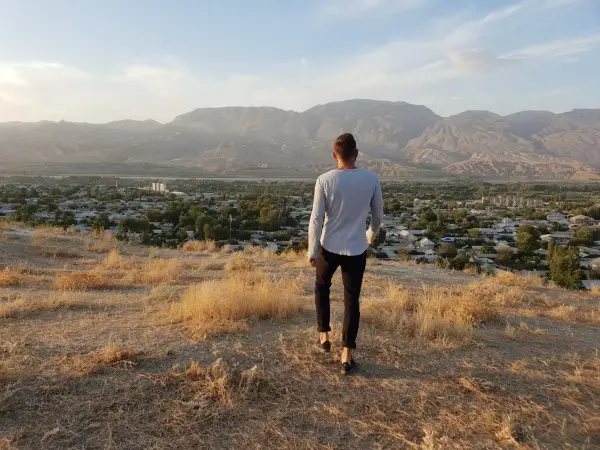
And finally, if you could invite any four people from any period of human history to dinner, who would you invite and why?
Hmm, this is a tricky one, because there are so many people that spring to mind. First would be Yuval Noah Harari, the author of the books Sapiens and 21 Lessons for the 21st Century. He has the best mind on the planet, and speaks with the authority of someone looking down at earth from space. His books are spellbinding. He was also one of the main inspirations for me getting into meditation.
Harari meditates for two hours a day. While I can only muster an hour or so, hearing how his practice improved his writing was enough to get me on board! I’d love to get Harai’s views on the world and on meditation, first-hand. If Harari started a cult, I’d probably be first on the sign-up list!
Second would Marcus Aurelius, the Roman Emperor and Stoic Philosopher. His writings on the challenges of life and how to be a good human being have had a profound impact on me. The fact that he writes about the same challenges that we face today – annoying colleagues, difficult relationships, diet, and so much more – really shows us that humans haven’t really changed for millennia. I’d love to hear about what life would have been like all those years ago, and find out why he was one of the few Roman Emperors who didn’t succumb to the pitfalls of power.
Third would be Aldous Huxley, the British author who wrote the legendary novel Brave New World. The book paints a strikingly accurate and dystopian image of what the world would be like in the future. Despite being written in 1932, he talks about topics like genetic engineering, technology, and psychological conditioning as if the book was written last year, not decades before any of the stuff was even being talked about I’d love to ask him how he managed to foresee what would happen in the world.
And also how he managed to talk about taboo topics like pacifism, psychedelics, and human creativity with such vigour, as the world hurtled towards another senseless World War.
Lastly, and perhaps veering off the high-brow philosophical theme of this dinner party so far, would be David Beckham. I think it would be only fair to my ten-year old self, who was obsessed with him, copied all of his haircuts, and cried when he left Man Utd for Real Madrid. It would also only be fair to the me of today, who despite being 32-years old still can’t help but think he’s one of the stylish humans on the planet. For this alone, Becks gets a seat at the table.
